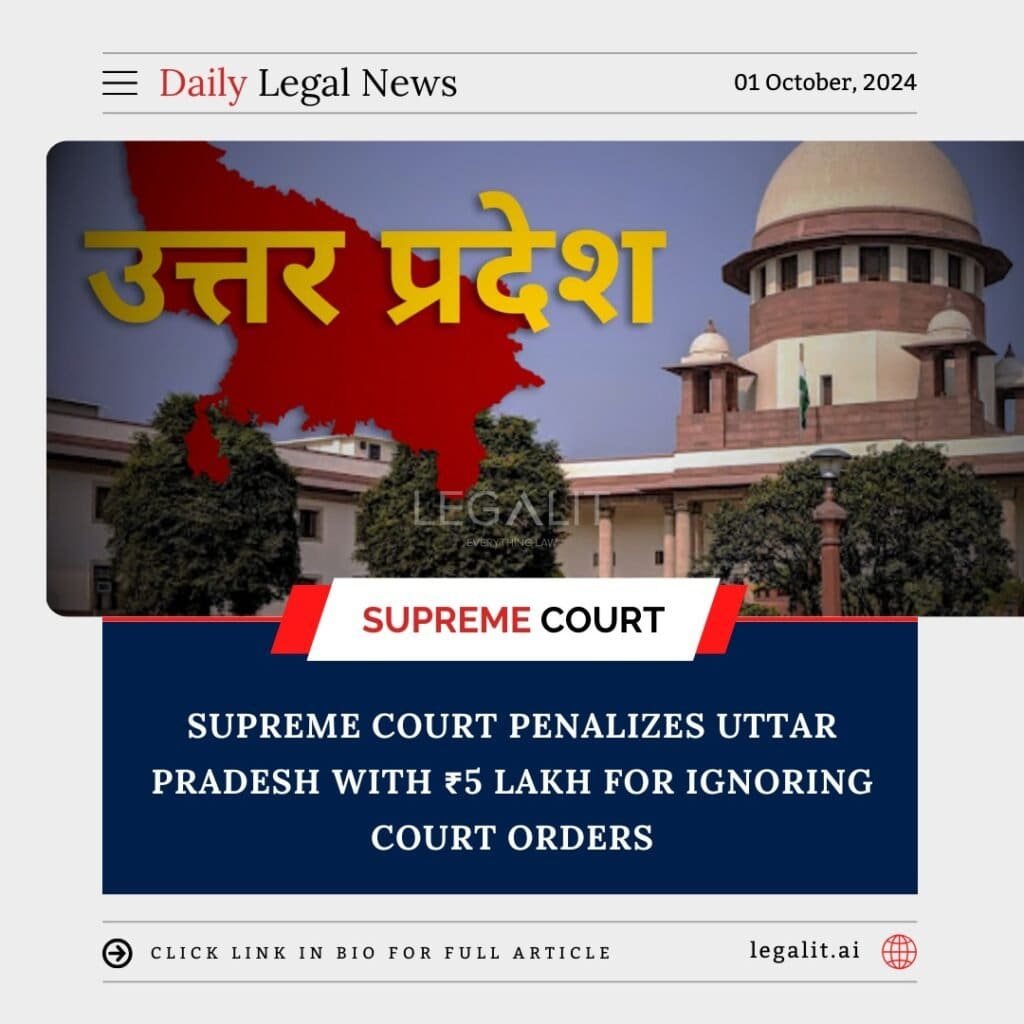
In a significant ruling, the Supreme Court of India has imposed a fine of ₹5 lakh on the Uttar Pradesh government for its repeated defiance of court orders. This decision underscores the judiciary’s determination to uphold the rule of law and ensure accountability among state authorities.
The issue arose from the state’s failure to comply with a directive regarding the timely processing of a remission plea for a convict. The Supreme Court had previously issued clear instructions, expecting the Uttar Pradesh government to take appropriate action. However, despite multiple reminders, the state continued to disregard these orders, prompting the court to take a firm stance against this non-compliance.
Expressing dissatisfaction with the state’s behavior, the court highlighted that such disregard for judicial mandates is unacceptable in a democracy governed by the rule of law. It reiterated that no government can evade the authority of the court, emphasizing that compliance with court orders is not merely a suggestion but a constitutional obligation.
In addition to imposing the penalty, the Supreme Court instructed the Uttar Pradesh government to immediately execute the initial directive and submit a compliance report within a stipulated timeframe. The court made it clear that any further failure to adhere to its orders could result in even harsher penalties, reinforcing the importance of accountability.
This ruling not only serves as a warning to Uttar Pradesh but also sets a precedent for other state governments, reminding them of their responsibilities towards judicial authority. The judiciary’s commitment to ensuring its orders are respected is crucial for maintaining public trust in the legal system.
The Supreme Court’s decisive action reflects its role as a guardian of the Constitution and protector of individual rights, emphasizing that the judiciary will not tolerate any attempts to undermine its authority. This case illustrates the need for state governments to prioritize compliance with court directives to foster a functioning democracy where the rule of law prevails.
As this situation unfolds, it will be essential to monitor how the Uttar Pradesh government responds to the court’s directive and whether this ruling leads to meaningful changes in the state’s approach to judicial orders.